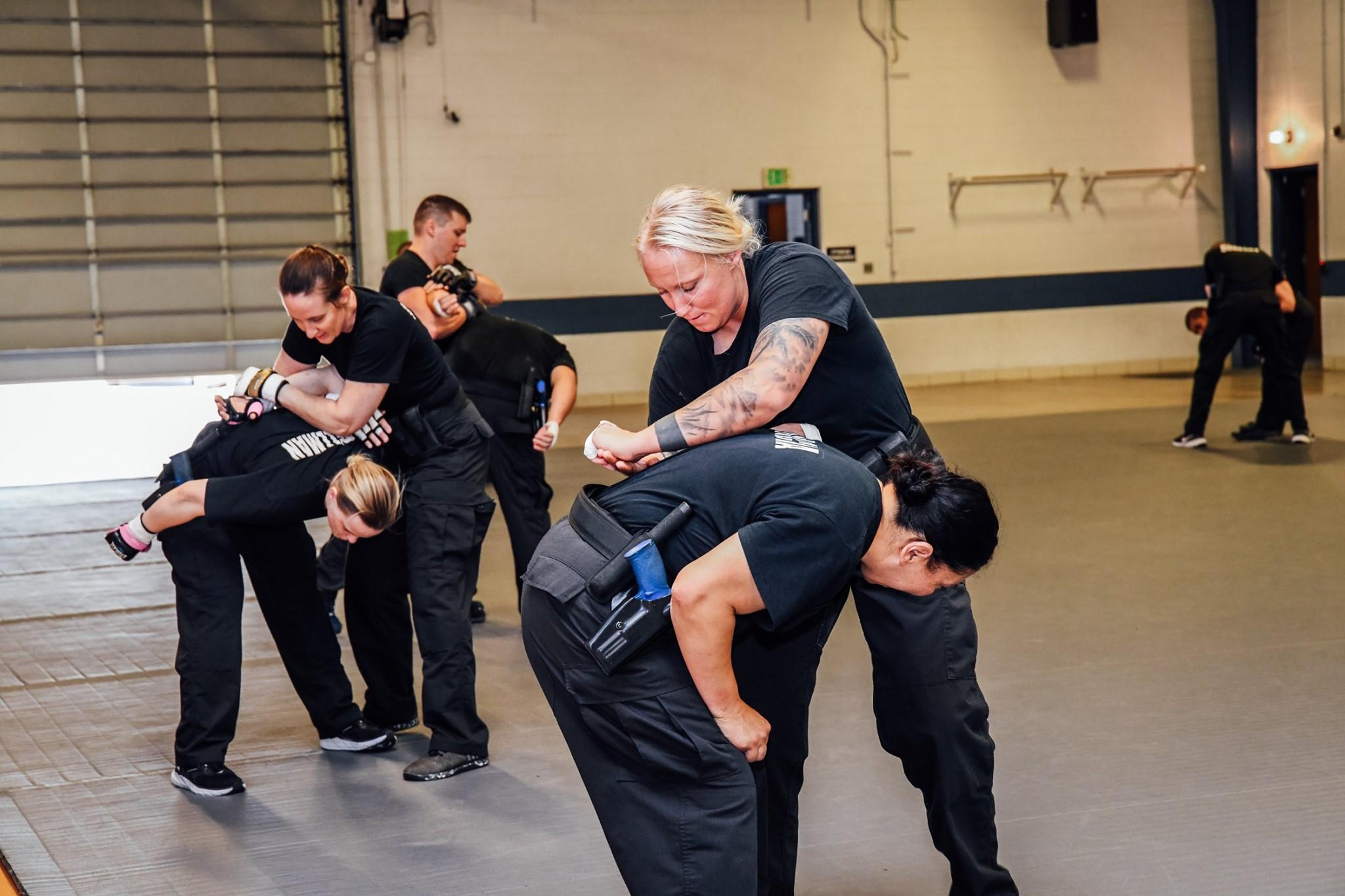Defensive Tactics and Arrest Control
Arrest Control & Defensive Tactics Training
No profession is more intensely scrutinized by the public than law enforcement. Citizens look to law enforcement agencies and their peace officers to exercise sound judgment, decisiveness and courage in ensuring public safety and consistent enforcement of our nation's state and federal laws. There is no higher calling than that of public service and law enforcement is clearly one of the most dangerous professions one can choose. On a daily basis, law enforcement officers encounter the unknown, which with increasing frequency includes highly aggressive suspects.
Today, law enforcement officers must contend with a number of complex issues when dealing with aggressive suspects. Never before have peace officers been asked to balance competing interests of public welfare against their own well-being. The Colorado State Patrol recognizes this and also prioritizes the safety of our members and their rights to protect themselves and their responsibility to protect third parties from harm. Arrest control techniques are part of every arrest, and while law enforcement training standards require proficiency in defensive techniques, it is also strongly encouraged that all law enforcement officers remain physically fit to ensure that they are able to contend with the unknown.
The Colorado State Patrol Academy cadets are required to have a minimum of 62 hours of training in Defensive Tactics and Arrest Control.
Within this training the cadets will learn:
- Use of force considerations
- De-escalation of force
- Alternatives to the use of deadly force
- Searching and handcuffing
- Control techniques
- Retention and retrieval of weapons
- Ground tactics and defense
- Impact weapons
The Colorado State Patrol has developed the Defensive Tactics and Arrest Control (DTAC) program to meet the needs of our members and the types of aggressive acts they may encounter on a daily basis. We have designed the program to be broad, general and inclusive. It includes techniques and tactics from a number of disciplines and programs that are currently being utilized by agencies throughout the nation and are widely accepted within the law enforcement community. The tactics and techniques comprising the Colorado State Patrol DTAC Program were chosen to meet Colorado P.O.S.T. requirements and the needs of our members. They were chosen to be simple and effective. We feel confident that the tactics and techniques contained within our manual are effective, appropriate and applicable to the wide variety of situations and real world encounters that our members face on a regular basis.
Scenario-Based Training
The Colorado State Patrol Academy also uses scenario-based training for our cadets and troopers. Scenario-based training assists cadets and troopers with the ability to apply the knowledge received in training, to a real-life situation. Troopers in the field must pass a written test each year with a minimum score of 80%. Troopers must also pass a practical test once per year with a minimum score of adequate. This same testing format is used for the cadets while in the Academy. Before the cadets graduate and become troopers, they are required to complete a dynamic scenario. This dynamic scenario will incorporate all of the skills that they have learned throughout the Academy. This scenario is known as RED MAN.
Physical Application
A typical day of training for cadets will begin with a brief lecture and then move into the Colorado State Patrol Academy gymnasium. Most of the training will be conducted on mats that provide a level of protection from the hard floor. Once in the gymnasium, we will begin with a program of stretching exercises. These stretches will help our muscles and our bodies to become prepared for the physical aspects of our training. To begin our training cadets will be paired together. These pairs of cadets will practice arrest control techniques on each other.
With appropriate use-of-force strategies in mind, the Colorado State Patrol DTAC program focuses on defensive tactics and techniques that give officers the skills and knowledge to protect themselves and to preserve the public peace while using the appropriate level of force to avoid liability. The ultimate goal of the Colorado State Patrol DTAC program is to create a system that reduces the chance for injury to the trooper and the suspect and that will ultimately save lives.
The knowledge and the confidence gained by the cadets through their defensive tactics training will enable them to expect the unexpected and always be prepared to deal with the situation at hand. The cadets will do this by incorporating all of the training that they receive at the Colorado State Patrol Academy.
